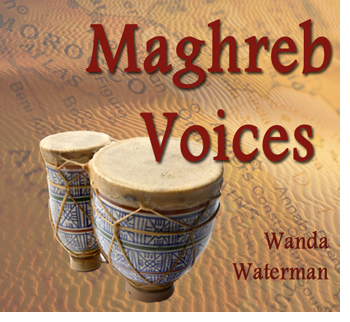 ?Freedom is poetry, taking liberties with words, breaking the rules of normal speech, violating common sense. Freedom is violence.?
?Freedom is poetry, taking liberties with words, breaking the rules of normal speech, violating common sense. Freedom is violence.?
Norman O. Brown
In 1980, Algerian scholar Mouloud Mammeri was preparing to present his book at a conference on Berber poetry in Tizi Ouzou. The book was a collection of poems he’d gathered, titled Poèmes kabyles anciens.
This bit of Algerian history may seem minor, maybe even pedantic. However, Poèmes kabyles anciens had been preceded by years of intense Arabization of Algeria, including prohibition of the Berber language in an apparent attempt to assimilate an ethnic group that had for millennia demonstrated an unconquerable spirit.
In fact, Berber culture had dominated the region since Neolithic times, and for nearly as long had been resisting relentless tides of foreign invasion, occupation, and colonization. Berbers had intermarried with the Arabs and Europeans that had entered their territories, and had also embraced Islam, but had never indicated a willingness to abandon their language, customs, or cultural identity.
Not surprisingly, therefore, the government put the kibosh on the poetry conference. Massive rioting?an event now known as the Berber Spring?commenced, an insurrection of such magnitude that it took the brutal dictatorship years to crush it.
 Other insurrections have reportedly been inspired and fuelled by poetry, but I can think of no others fought in its defence. Which brings the question: What kind of people are these, anyway?
Other insurrections have reportedly been inspired and fuelled by poetry, but I can think of no others fought in its defence. Which brings the question: What kind of people are these, anyway?
Their history is one of painful?but unrelenting?struggle against oppression. Their problems boggle the mind. During the Algerian War of Independence, the Berbers had joined with the Arabs in ousting the French occupation. However, in the aftermath of the war the Berbers found their culture and language threatened by measures intended to homogenize the country into one culture, language, and religious view.
It gets worse. The current discontent in Algeria parallels what we’ve recently witnessed taking place in Tunisia and Egypt, but it is unique in that the dictator Bouteflika (hand-picked by the army in 1999) is not really in charge. And so the fundamental weakness of revolution per se? the difficulty of uprooting all traces of the corruption of a former regime? is especially salient when the regime is ruled by an army as opposed to an autocrat. At least the ousting of Ben Ali from Tunisia could be seen as a symbolic victory, as will the departure of Mubarak from his ruling position in Egypt if this should ever take place.
Algerians may not even be able to hope for a symbolic victory. For one thing, they’re keenly aware that their success in ridding themselves of French rule when the War of Independence ended in 1962 was followed by a regime at least as corrupt as the one it had jettisoned.
you’d think such a historical record and life under such oppressive tyranny would produce a catatonic numbness. Not so?unlike the Tunisians, who until the recent Jasmine Revolution were deceptively docile, the Algerians have always protested. Just last year over a hundred thousand riots, demonstrations, and other clashes resulting in police intervention were reported.
When asked what they want for their country, young Algerians will nearly always answer that among other things they want democracy, some insisting that without democracy violence is inevitable. The 40 political parties all use the word ?democracy? or some form of it in their names, indicating an awareness of the depth of this national longing and in some cases a desire to exploit it.
Although political parties have made many attempts to hijack Algerian unrest and steer it to their own advantage, social networks are ensuring that the uprisings are seen as popular, not political. Demonstrators are discouraged from self-identifying with any party or ideology, and political leaders are asked to take a back seat during demonstrations.
 Leaderless rebellions may at first glance seem like a purely modern phenomenon, a by-product of the Internet age, but such rebellions have been recorded back as far as the ancient world. Long before the web and social networks, popular rebellions have inspired poets?and poetry has always served to fuel rebellions.
Leaderless rebellions may at first glance seem like a purely modern phenomenon, a by-product of the Internet age, but such rebellions have been recorded back as far as the ancient world. Long before the web and social networks, popular rebellions have inspired poets?and poetry has always served to fuel rebellions.
Throughout history, the human urge to resist domination is primal and universal and bound up with the urge to recite magical incantations that negotiate, initiate, and transform experience. The language of resistance and the language of poetry share the same primitive essence. Thus It’s not surprising that in a country that has for so long been wracked with struggle, the suppression of a book of poetry should serve a catalyst for insurrection.
(To be continued next week.)


